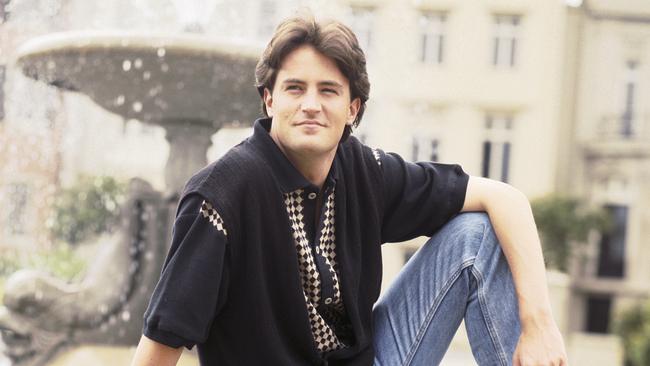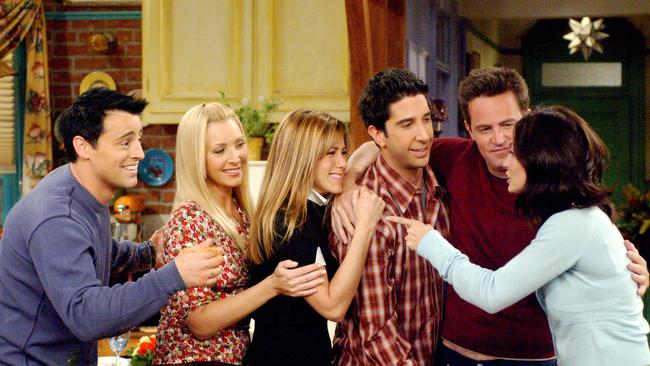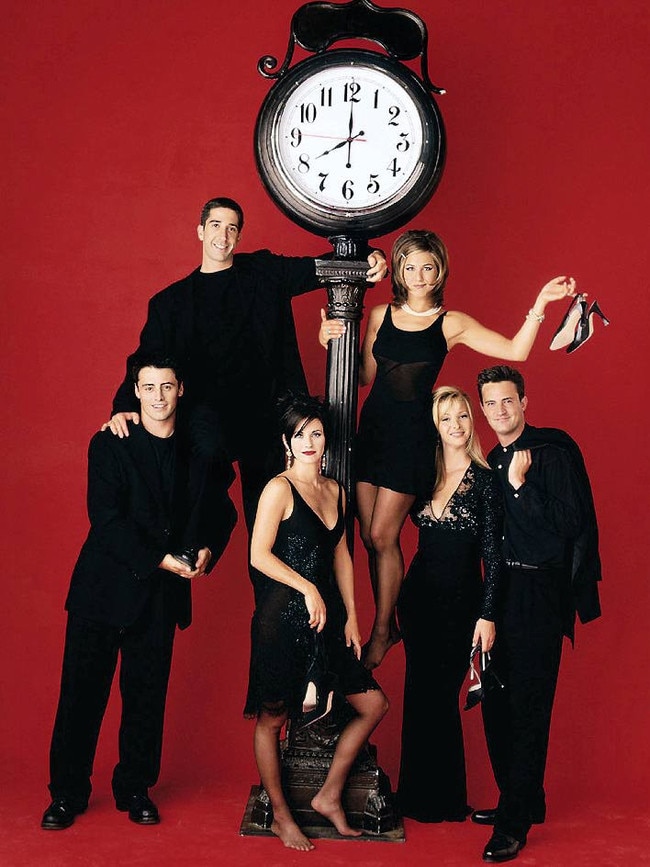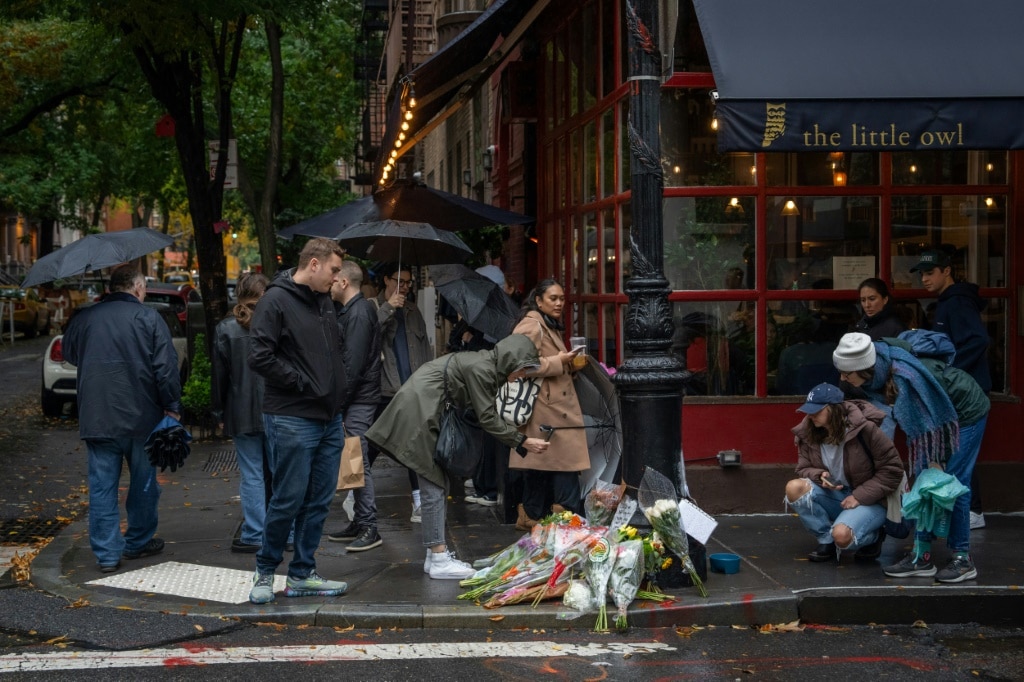Television’s deadpan, cynical friend Matthew Perry helped shape sense of humour of millions


Chandler – a deadpan, sensible, sarcastic accountant living in New York City with a chick, a duck and his best friend – could not have related less to a chubby Lebanese primary schooler living in the outer suburbs of Sydney, sneaking into the living room at night to loll on the floor and watch television.
I would bite a blanket to keep my laughs under wraps so my parents in the next room wouldn’t be woken. This wasn’t always easy. Those familiar with the show will know Perry’s pithy one-liners – many improvised – were difficult to keep quiet around. The jokes (a large number of which would have flown way over my head when I first watched) were delivered with flawless self-derision.
In later years, when I watched full seasons of Friends with my friends or my partner, Chandler provided a comfort, a laugh and a sense of familiarity.
And so, when news of Perry’s death broke this week, I felt it.
I’m not so self-absorbed as to think I was alone in this – millions of us felt it. But I think the 24-year-old Perry, who set out to create a sitcom alongside five other barely known actors, never would have realised the legacy he would leave, not only for the audience of the time but also the audience of generations to come.
The show introduced us to the glamorous Rachel (played by Jennifer Aniston) with her choppy bob and her high-flying fashion jobs, and the tightly wound Monica (played by Courteney Cox) with her type A demeanour and love of cooking.

Joey (played by Matt LeBlanc) made us laugh in the obvious sense as he gorged on pizza and tore through women, while Phoebe (played by Lisa Kudrow) carried us into a whimsical, hippie dreamland full of herbal teas and poorly played guitar solos.
Don’t get me started on the often hard-to-watch Ross (played by David Schwimmer) who depressed us with his multi-divorces, terrible luck with women and obsession with dinosaurs.
Chandler, among the six, was always a stand-out. His sometimes harsh but always harmless digs at his friends paved the way for a sense of humour that re-emerged in sitcoms for decades to come.
He became a piece of the furniture in the global zeitgeist and shaped the sense of humour of millions. His cynicism broke the mould of the other 20-minute TV shows that dominated screens.
Forget twee Full House or the cheery Party of Five, with their sunny outlooks and endless positivity. People craved the dryness and simplicity of the ever-realist Chandler Bing.
I clearly remember walking from school to swimming practice with a fellow tween friend years after the final Friends episode aired, and laughing to the point of tears as we discussed our favourite episodes.
Hers? The One Where Chandler Takes a Bath. Mine? The One With Chandler in a Box.
We would dream of moving into our own apartments one day, next door to one another, with a local coffee shop we could park ourselves in for hours on end. We would mimic Chandler’s intonation in the schoolyard – could this sandwich BE any more yuck? – and chatted about our own Chandler-Monica marriages one day.

Earlier this year Aniston said Friends could not have been made in 2023. She said it would not be able to weather the storm of cancellation that tore to shreds the dozens of sitcoms that aired around it.
“There’s a whole generation of people, kids, who are now going back to episodes of Friends and find them offensive,” she said back in March.
“Now, it’s a little tricky because you have to be very careful, which makes it really hard for comedians, because the beauty of comedy is that we make fun of ourselves, make fun of life.”
In some ways, I understand where Aniston is coming from. People today can’t hack the subtle racism embedded in That ’70s Show, or the jokes about sexual assault in How I Met Your Mother.
They can’t stomach the four women at the centre of Sex and the City or their heteronormative attitudes towards dating and relationships. So much so, that when the show was rebooted in 2021 as And Just Like That, the narrative no longer centred on the fabulous (and familiar) protagonists but on new, gender queer, body positive, racially diverse companions.
And while I agree with Aniston that perhaps no production house would be brave enough to create a television show that made fun of the norm the way Friends did, I don’t think it could ever be cancelled the way others have.
Viewers today turn a blind eye to politically incorrect jokes about Ross’s lesbian ex-wife, Chandler’s transgender father and Monica’s obesity in a way that they wouldn’t do with just any show.
They ignore the fact all the main characters and the bulk of secondary characters are white and in no way representative of the society around them.
Sure, when analysed, some of the jokes are in poor taste and, in hindsight, perhaps poking fun at minorities isn’t a nice thing to do.
But when a television show plays such an integral role in shaping the personalities of multiple generations, it takes a bit more than a few easily offended internet trolls to ban it from being aired.
On Sunday night, when I sat down to watch the Friends pilot in the wake of Perry’s death, I did so through teary eyes.
This man, who long suffered from drug and alcohol addiction and myriad mental-health issues, masked it so well for the sake of making his ever-growing audience laugh.
Audiences will continue to appreciate this as they watch (and re-watch) for decades to come.
Ellie Dudley is The Australian’s legal affairs correspondent.







When Matthew Perry created Chandler Bing, I’m not sure that he did so with someone like me in mind.